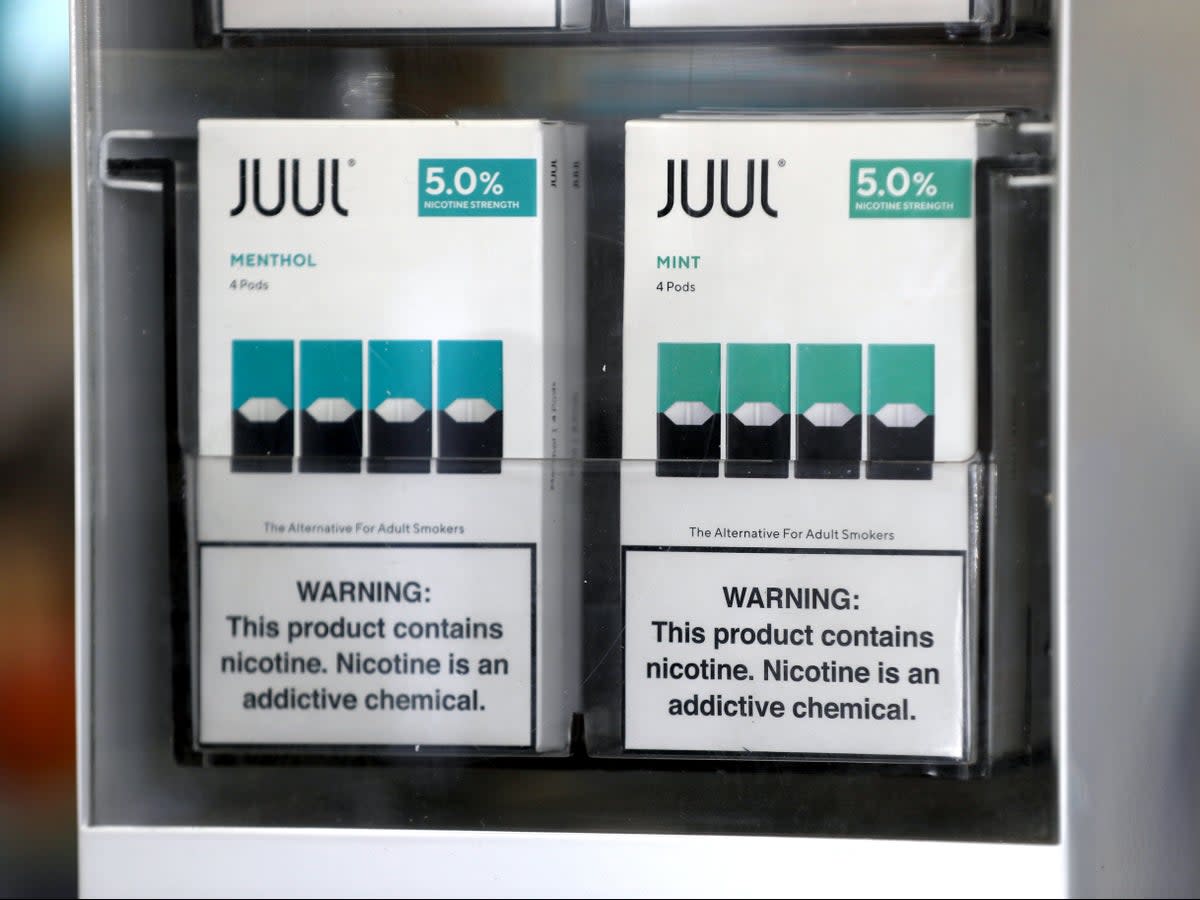Juul e-cigarettes officially banned in the US

The Food and Drug Administration (FDA) has officially ordered Juul to remove its e-cigarettes from the market.
In a press release issued on Thursday, the FDA ordered Juul to “stop selling and distributing these products” and noted that anything “currently on market must be removed, or risk enforcement action.” They emphasized that the products that fall under the ban include the Juul device and four types of “Juul pods: Virginia tobacco flavored pods at nicotine concentrations of 5.0% and 3.0% and menthol flavored pods at nicotine concentrations of 5.0% and 3.0%.”
FDA Commissioner Robert M. Califf, MD said in a statement that Thursday’s “action is further progress on the FDA’s commitment to ensuring that all e-cigarette and electronic nicotine delivery system products currently being marketed to consumers meet our public health standards.”
“The agency has dedicated significant resources to review products from the companies that account for most of the U.S. market. We recognize these make up a significant part of the available products and many have played a disproportionate role in the rise in youth vaping,” he said.
Earlier this week,The Wall Street Journal reported that the ban was coming and that the FDA may reveal its decision as soon as Wednesday. The rejection would come following a review lasting two years of data presented by the company.
The vaping company has sought authorization for their tobacco- and menthol-flavoured e-cigarettes to remain on the US market.
The FDA first looked into Juul four years ago when its flavours and marketing strategy were blamed for a spike in vaping among underage individuals.
The company has since been trying to get back the trust of the authorities as well as the public. Juul restricted its marketing efforts and ceased the sale of sweet and fruit-flavoured e-cigarettes in 2019.
The company’s sales have decreased significantly in the last few years.

The FDA has banned the selling of all e-cigarette cartridges with sweet and fruity flavours, while it has allowed Juul competitors Reynolds American and NJOY Holdings to keep selling its tobacco-flavoured products.
Observers of the industry expected that Juul would receive a similar judgement, The Wall Street Journal noted.
Juul could appeal the possible FDA decision, challenge the agency’s measure in court, or file a new and revised application to sell its products.
The Independent has reached out to Juul and the FDA for comment.
In a press release issued on Tuesday, the FDA said that the Biden administration has announced plans for possible future regulations to put in place “a maximum nicotine level to reduce the addictiveness of cigarettes and certain other combusted tobacco products. The goal of the potential rule would be to reduce youth use, addiction and death”.
Around “480,000 people die prematurely from a smoking-attributed disease” annually, according to the agency.
Tobacco is the “leading cause of preventable disease and death” in the US and “costs nearly $300bn a year in direct health care and lost productivity”, the FDA said.
The agency noted that “nicotine is not what makes smoking cigarettes so toxic,” but that “it’s the ingredient that makes it very hard to quit smoking”.
“More than half of adult cigarette smokers make a serious quit attempt each year (quitting for at least a day), but most do not succeed,” the FDA said.
The agency said the new standard could make the “products minimally- or non-addictive”.
In a statement, FDA Commissioner Robert Califf said on Tuesday that “making cigarettes and other combusted tobacco products minimally addictive or non-addictive would help save lives”.
The agency added that a 2018 paper “projected that by [the] year 2100, a potential nicotine product standard could result in more than 33 million people not becoming regular smokers, a smoking rate of only 1.4 per cent, and more than eight million fewer people dying from tobacco-related illnesses. The current smoking rate is 12.5 per cent”.

